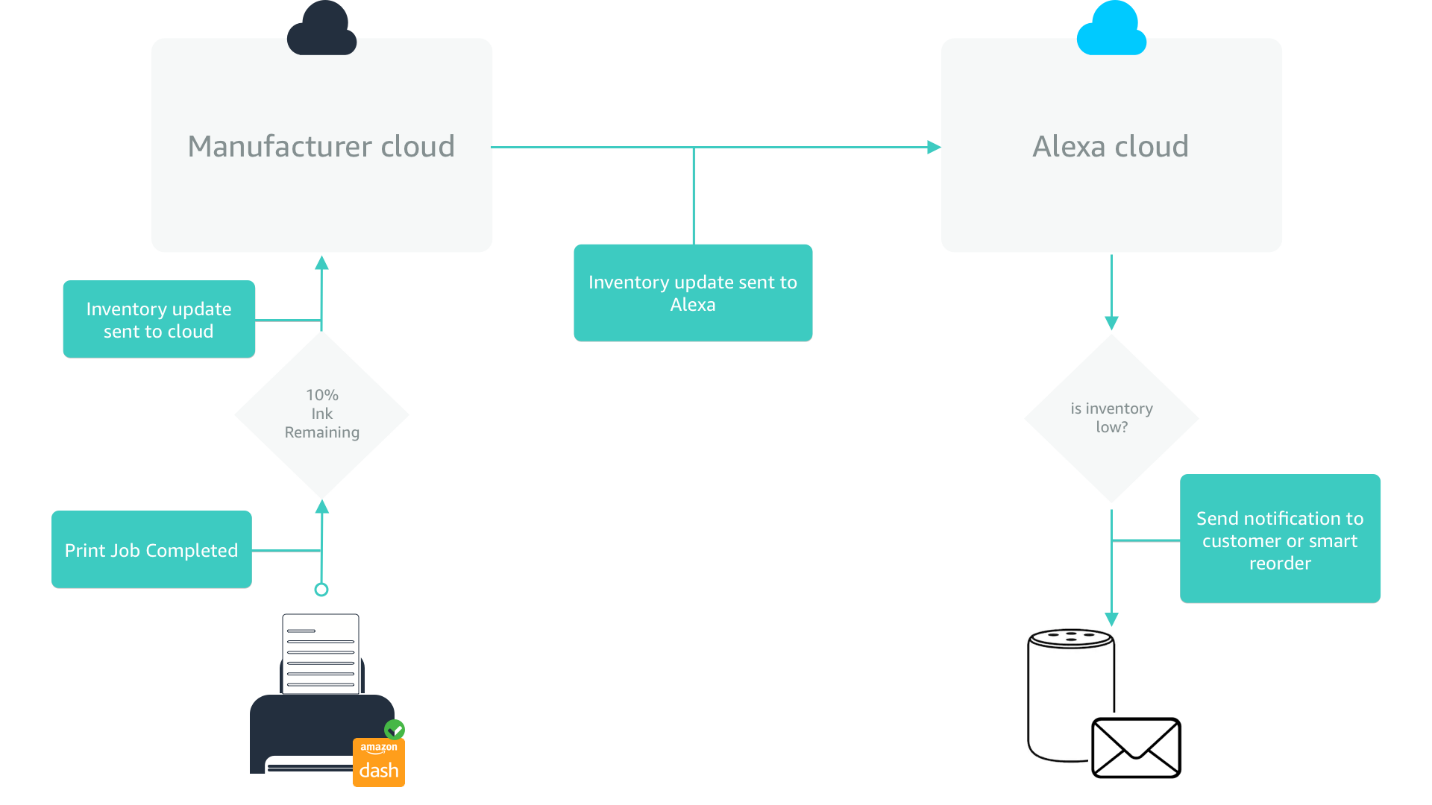Alongside all the new Alexa-powered consumer devices Amazon introduced yesterday, the company also unveiled a new set of tools for the makers of smart home device skills that will allow them to tap into Alexa to re-order their supplies. Think — things like printer ink, air filters for smart thermostats, detergent for washing machines, or anything else that has replaceable parts.
This is an area Amazon has focused on before, by way of the Dash Replenishment Service, or DRS. Devices that use the service’s APIs can automatically re-order their supplies, after a customer sets up their account and selects the product they’ll want to be shipped when they run low.
The new set of tools is an extension to that earlier service, as it will allow the device makers to alert their customers they’re low on necessary supplies by way of Alexa’s skills.
This will work by way of a new set of inventory sensors, due to launch soon, in Amazon’s Smart Home Skill API. There are three different types of sensors to choose from, depending on the device’s needs.

The first to arrive sometime later this year is the Alexa.InventoryLevelSensor. This will address the needs of devices where the consumable product is stored internally — like the batteries in smart cameras or printer ink, for example.
Next year, two other sensors will launch. The Alexa.InventoryUsageSensor will work when the product is not stored internally, but the device can determine when a certain amount of consumable inventory is used. In this case, good examples would include a smart coffee pot, washing machine, or dishwasher.
The third, Alexa.InventoryLevelUsageSensor, can be used when the consumable product is stored internally, and the device can report on its usage rather than its current state. For example, a smart thermostat could report the fan time to let customers know it’s time to change the air filter. Or a vacuum cleaner could alert customers to replace a dust bag.
By using these APIs, Alexa can help the customers manage their household supplies, by letting them know they’re low or helping them to set up automatic re-orders in the Alexa app. If the customer chooses to set up smart re-ordering, that’s when the Dash Replenishment Service will kick in. Unlike Amazon’s “Subscribe & Save” shopping feature, these smart home supply re-orders will only be placed when the consumable item is running low.
The benefit of this design is that it can help nudge smart home device users to place orders — from Amazon, the company hopes, just by having Alexa remind them. And it can also work even if the customer doesn’t want to set up automatic re-ordering for some reason — perhaps because they shop for supplies locally or want to comparison shop online.
Amazon says August, Blink, Ring, Schlage, and Yale are already working on including inventory sensors to report battery levels from their skills, and Coway is working to report the usage of air filters.
In addition to helping their customers manage their household, the new feature will also enable smart home kill developers to establish recurring revenue streams associated with their devices. When a customer signs up for Dash Replenishment, Amazon pays out a one-time referral fee. And then as the re-orders come in, developers will earn a revenue share on all the orders placed — even if ordered manually following an Alexa notification. Of course, if the device maker is selling its own manufactured products, they’ll earn even more.
Amazon says all U.S. developers will be able to use the new inventory sensors soon.
